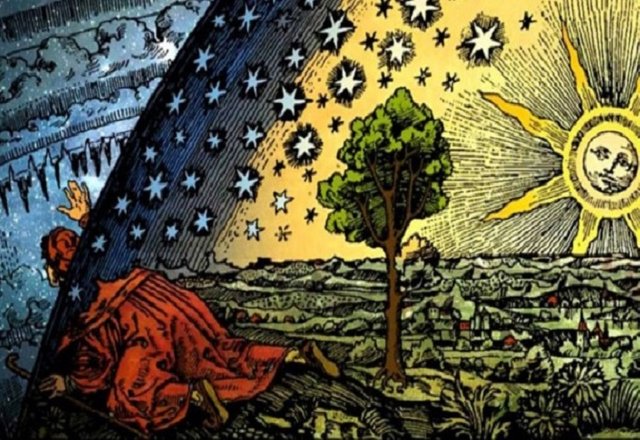Object and definition of Philosophy. Philosophy as metaphysics.
The word metaphysics is of Greek origin and is related to the name of one of the followers of Aristotle - Andronikos Rodoski. Around the middle of the 1st century BC. he collects and arranges the works of Aristotle, putting first the logical essays, then the physics and finally the post / behind, or beyond physics / sets the works that Aristotle himself has united under the common name "First Philosophy ". Initially, this "behind or beyond physics" had a purely technical, editorial-publishing meaning, but soon it was polished and the term metaphysic was introduced. According to a number of philosophical schools and strands, it is equivalent to philosophy, and is considered the crown of science, and according to others it is synonymous with a stiffness and delusion, so it is subject to attack and complete denial.
In order to understand the subject of metaphysics, it would be best to look back and see how Aristotle defined it in its own writings, which in the first place had the name "metaphysics" and which to this day are denoted by this term. Aristotle described them as "First Philosophy," a philosophy in the narrow sense of the word, since philosophy, according to his conception, was "a union of all scientific knowledge." In this broad sense of the word - according to him - philosophy is both logic and physics as scientific disciplines. He calls "the first philosophy" to be just "philosophy", "wisdom," or "theology", since God believes it to be the foundation of all things, and it must be explored precisely by this science. For an object, it has Being as a whole, the first beginnings and causes of Being; it is - "theory of the first beginnings and causes". All other special sciences examine only particular parts or species, separate forms and relationships in being (e.g. mathematics explores the dimensions, physics - substance and movement, biology - life, etc.), and "the first philosophy" regards "being as such and what it treats as being." It examines the most general definitions and principles, the most general laws and essences of being taken as a whole. It is the most general and the most difficult science because it generates the most profound summaries, but it is at the same time the only realistic science because it takes the being in its unity and integrity as it is, while the other sciences are studying only segments of reality, insulating them artificially from their relationship with the whole.
All sciences have different subject areas and divisions, but only the "first philosophy" puts the basic and general question of what beings mean in general; what is a substance. It examines whether the essence of things is material, material, as Demokritus admits, or something ideal, as Plato teaches. All sciences know reality by reason, but only the first philosophy asks the principle question, what is reality, what is reason and what is knowledge, as well as the question of how the known reality relates to the knowing subject. Being gains in our cognitive activity common definitions through the generic and species concepts, but only the "first philosophy" explores how concepts refer to something common to specific single objects. It examines what exists in the real world of what a true being belongs to: single things, as Antitisten thinks, or the common principles that are conceived in the notions of ideal forms, as Plato maintains. Aristotle basically analyzes the lessons learned from past studies: the problems of nature and forms of movement, and God as the "first engine" of the world, Himself immobile and eternally contemplating Himself; the essence of causality and the various types of causes, including the causal effects and the causa finalis; the nature of matter and form and mutual respect; the attitude of the single to the common and vice versa; for the attitude of the one who abides to the variable; about the origin and the end of everything; for the purpose and meaning, etc.

well done great artical with great information
philosophy described many things great
You got a 4.03% upvote from @upme thanks to @godflesh! Send at least 3 SBD or 3 STEEM to get upvote for next round. Delegate STEEM POWER and start earning 100% daily payouts ( no commission ).
You got a 14.09% upvote from @postpromoter courtesy of @godflesh!
Want to promote your posts too? Check out the Steem Bot Tracker website for more info. If you would like to support the development of @postpromoter and the bot tracker please vote for @yabapmatt for witness!
good writing skills. This sort of reminds me of an alchemy book I have read before.
You have recieved a free upvote from minnowpond, Send 0.1 -> 10 SBD with your post url as the memo to recieve an upvote from up to 100 accounts!